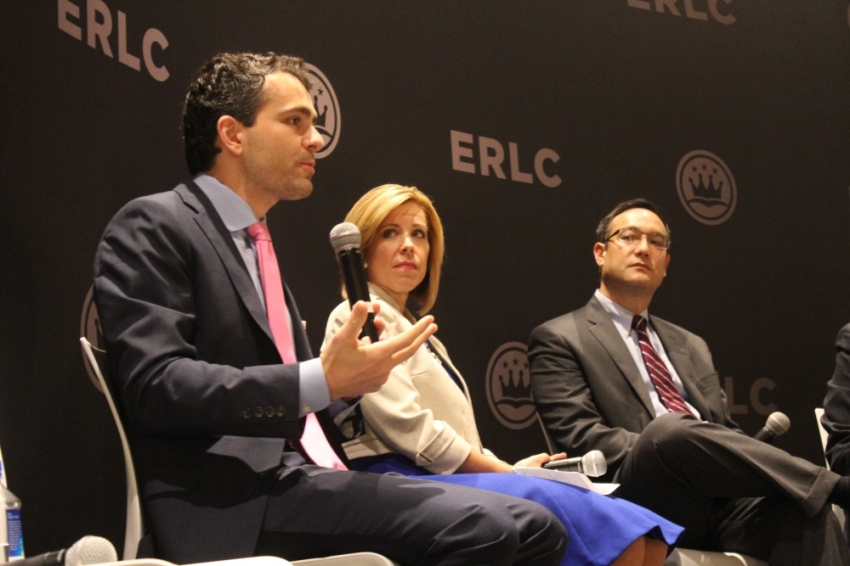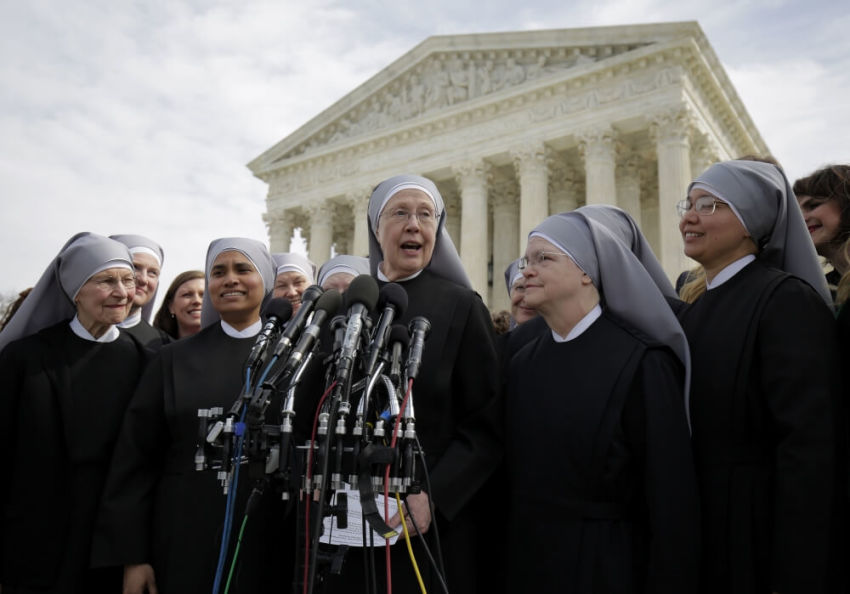Society's Most Vulnerable Hurt Most by Gov't Crackdowns on Religious Freedom, Ryan Anderson Says

WASHINGTON — The poor, the dying and the orphaned are hurt the most when governments infringe upon the religious liberties of churches and other faith-based institutions, Heritage Foundation's Ryan Anderson and other religious freedom experts explained Monday night.
In a panel discussion organized by the Southern Baptist Convention's Ethics & Religious Liberty Commission, Anderson, an author and Heritage Foundation senior research fellow, Alliance Defending Freedom attorney Kristen Waggoner and Washington University law professor John Inazu discussed the ways in which religious freedom promotes human flourishing.
During the panel, the participants were asked to explain the societal harms that arise when governments try to impose ideological standards and restrict religious liberty to simply freedom of worship.
Anderson, who authored the book Truth Overruled: The Future of Marriage and Religious Freedom after the Supreme Court's gay marriage decision last year, provided a number of examples of how government imposition on faith-based charities and organizations have affected the wellbeing of society's most vulnerable members and how government imposition could affect the wellbeing of society's most vulnerable in the future.
"It's the people who are on the periphery … who are being served by these religious charities and they would be the ones who lose the most if these charities are forced out of business," Anderson stated.
Anderson began by explaining how Catholic Charities of the Boston Archdiocese was forced to make the tough decision to stop its adoption services in 2006 after the state of Massachusetts required that the organization violate its Catholic convictions and place children with same-sex couples.
Ryan explained that although Catholic Charities may have had a different ideological view than the state government, it still served the public good because the agency placed a lot of older kids with loving families that other adoption agencies had trouble placing.
"Lots of people want to adopt newborn babies because they are cute and cuddly but not many people want to adopt an 11-year-old boy who has been bouncing around in foster care and foster homes for over a year. Yet, Catholic Charities was able to get people to adopt the 11-year-old boy," Anderson explained. "Chalk this up to Catholic guilt or to grace but one way or another, they were able to get families to be more generous and welcome children into their hearts and into their homes that other agencies were having a hard time placing."
Without Catholic Charities facilitating, Anderson said that many mothers facing unplanned pregnancies and families looking to adopt might be scared away from the adoption process because of the bureaucratic nature of the process.
"That is a concrete way in which mothers facing unplanned pregnancies, families who want to adopt and kids who need to be adopted are all being ill-served because of the ideology that the government wouldn't budge on and wouldn't grant any exceptions or accommodations," Anderson asserted. "The Catholic Church had been taking care of widows and orphans long before the state of Massachusetts even existed. It was entirely turned upside down in terms of obligations here."
After the Supreme Court's gay marriage ruling last June, there has been much concern regarding potential consequence for faith-based schools and colleges who uphold a traditional man-woman definition of marriage.
Specifically, United States Solicitor General Donald Verrilli couldn't deny in the Supreme Court's oral arguments last April that possible loss of tax-exempt status is going to be "an issue" for faith-based schools that have policies reflecting a traditional definition of marriage.
But as many Catholic schools and other faith-based schools are serving America's inner-city children, Anderson stresses that inner city children are the ones that will be most hurt by such a move to strip Christian schools of their tax-exempt status over gay marriage.
"Many of the people who attend inner-city Catholic schools aren't even Catholic but they are getting a better education in these Catholic schools than they would be at these inner city public schools," Anderson said. "Who will be the biggest losers if the Catholic schools are forced to shut down? It will be children who are already ill-served by our bad public school systems."

Another prime example of how the government is trying to force its political ideology on faith-based institutions is the Obamacare contraception mandate, which forces faith-based nonprofits to allow the federal government to supply their employees with birth control and abortifacients through the organizations' health plans even though they have a religious objections.
Little Sisters of the Poor, a Catholic order of nuns who serve the sick and dying, are at the forefront of the legal battle against the mandate and could face millions of dollars in fines that could cripple the organization if they lose their case.
"[The Little Sisters] take care of the elderly, dying, sick, poor, people who are at the end of their life and they are showing them what a compassionate death and dignity looks like, accompanying them as they prepare for death," Anderson said. "Who is it helping to shut them down if they don't want to comply with this contraception [mandate]?"
Just last week, the Supreme Court remanded the Little Sisters' case back to lower courts and seemingly called on the government and lower courts to figure out an accommodation that does not infringe on the organization's' religious liberties.
During the discussion, Waggoner chimed in saying that many Christian doctors, lawyers, professors, counselors, institutions and schools could also be at risk of losing their licenses or accreditations if they do not live up to the ideological standards set by the governments.
"All of those things are going to be subject to what the state's ideology is and an agreement to that ideology," she said. "You lose the opportunity to participate in meaningful way in the market place. That is a frightening thought."
Inazu pointed out a rising hostility toward the college student organization InterVarsity Christian Fellowship. In fact, the InterVarsity chapters on Cal State campuses were once de-recognized by the university system as an official student group. However, the organization was reinstated last June.
"Many college administrators tell InterVarsity that this was the group that was the best with multi-ethnic relations on campus, this was the group that intervened when they dealt with sexual assault on campus," Inazu said.



























